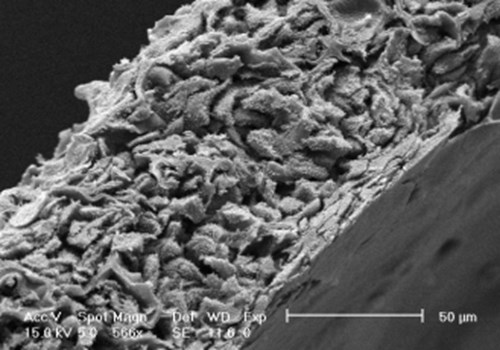Advanced cell culture systems for investigating microbe-host interactions

Scanning electron microscope image of an alvetex 3D culture.*
For many years the study of microbe-host interactions has relied on the use of in vitro methods, specifically two-dimensional (2D) in vitro mono-culture of a single cell type, and animal models. In vitro conditions vary considerably from those in vivo and the mechanisms of infection for many pathogens are species specific; new and emerging micro-organisms can be difficult to propagate, and appropriate animal models are limited.
Three-dimensional (3D) culture systems are used in many biological science disciplines including cell biology, immunology, tissue engineering and cancer and stem cell research. This technology can assist in the study of microbe-host interactions in a setting which better represents in vivo physiological conditions; tissue-like constructs which are similar to their equivalents in vivo are present allowing for more in depth, accurate and relevant investigations to occur.
Advanced cell culture systems can therefore be used in a variety of ways, in many areas of research, and there is scope for these technologies to be used to enhance drug development, therapy studies and vaccine development and evaluation.
ECACC is holding a one day workshop in June on advanced cell culture, including 3D culture systems, and their applications in research. To find out more about this event and to register, visit the event registration page:
Advanced Cell Culture: A Practical Approach
*Image courtesy of Stefan Przyborski, Professor of Cell Technology, Durham University
